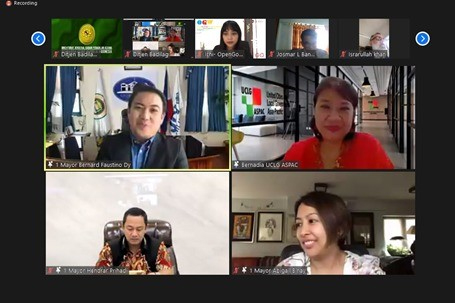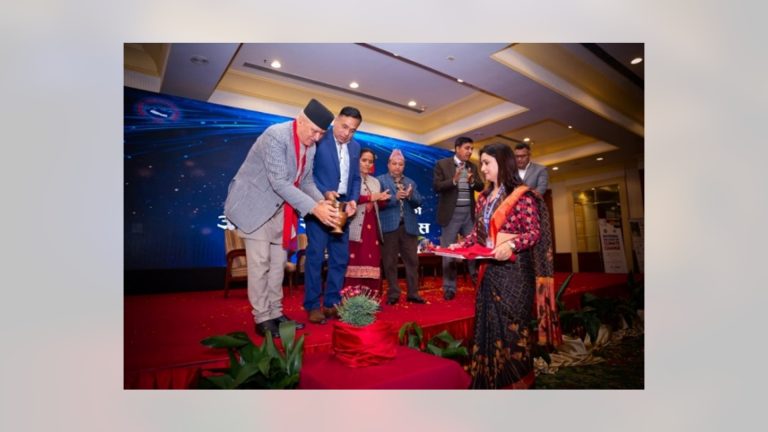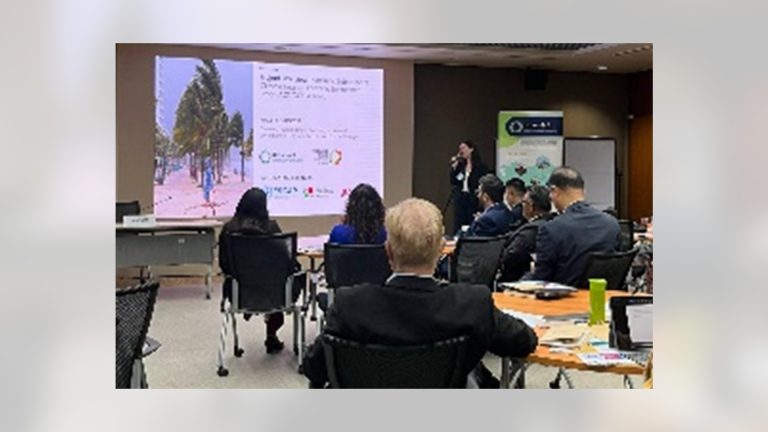17-20 May 2021 | Jakarta – UCLG ASPAC brought up resilience issues and showed how it supports better open governance in “Open Government Indonesia Week,” a virtual event attended by cities and local leaders in Indonesia. Throughout the four-day event, UCLG ASPAC also organised a training workshop agenda to develop the capacity of local representatives through the Training of Trainers on Disaster Resilience. UCLG ASPAC also hosted knowledge exchanges promoting local actions for smart and open governance post-pandemic partnership and local innovations to improve accountability through digital governance.
Training of Trainers (ToT)
From 17 to 18 May, UCLG ASPAC shared the knowledge to representatives of the National Disaster Management Agency (BNPB), the Ministry of Home Affairs, Local Governments, such as Banjarmasin, Pangkal Pinang, Semarang, Brebes, West Sumbawa, Padang, Banggai, as well as relevant civil society organisations.
The two-day training exposed local governments representatives to risk and resilience lecture and exercise, the localisation of the Sendai Framework for Disaster Risk Reduction (SFDRR), identification of city’s shocks and stresses, and alignment to Sustainable Development Goals (SDGs). The knowledge is designed to equip participants to actively get involved in the evidence-based decision-making process and produce relevant policy, as well as to build the capacity of others to support the process of better open governance. Dr. Raditya Jati and Mr. Agus Wibowo from the National Disaster Management Agency were some distinguished speakers joining participants of this ToT.
OGI Talk Web Series
From 19-20 May 2021, UCLG ASPAC also hosted discussions on local actions and innovations to promote cooperation among cities by inviting speakers from foreign countries.
Local Actions
Mayor Madelaine Alfelor of Iriga shared the strategy applied by the city government is to create a smartphone application iContact App, an integrated application to track positive COVID-19 cases and as a forum for public complaints. This application has an iKonsulta feature for the public to get free doctor consultations 24/7. In the economic sector, the city is also making sure that employment is available after the pandemic, for example by developing an Amusement Park that will generate employment for the people of Iriga and to attract tourists. The government also made ICT Technohub, which is a co-working space and a learning centre. For food security, there is a Merkado in Iriga to facilitate local farmers to sell directly to the local people of Iriga.
Dr. Nurhandini Ela Dewi, representing West Nusa Tenggara Province, shared local initiatives including the development of a hepatica laboratory in collaboration with the University of Gajah Mada and the University of Airlangga. West Nusa Tenggara also developed the NTBCare application as a platform for the public to report complaints.
Mayor Herwin Yatim of Banggai Regency shared their local innovation including the development of the Pasar Tani Online (Online Farmers Market), an application for local farmers to sell their agricultural products. Through the development of an application, it is also expected that the local economy can lever during the pandemic, while at the same time avoiding direct contact to mitigate the spread of the COVID-19 virus.
Innovations
Mayor Hendrar Prihadi of Semarang City shared a presentation about the Semarang Smart City Programme. Throughout 2020-2021, the Smart City development programme has focused on the acceleration of COVID-19 response and economic recovery. This programme allows the public to get involved by monitoring directly through public CCTV on the smg.city/cctv website portal.
Mayor Mar-len Abigai Sombillo Binay of Makati City shared innovation made by Makati, the First Smart City in The Philippines. According to her, the local government is investing in improving the Disaster Risk Reduction and Management equipment in Makati, thereby increasing preparedness and efficiency in dealing with disaster risks. Makati is also (the first local government in Southeast Asia) implementing a pet microchipping programme to track and increase the responsibility of pet owners in the event of a disaster. Makati adopts strategic disaster risk management and leadership facilitated by the Asian institute management. Makati has also developed an initiative to create the Makatizen Card (combining functions of ID card, financial service card, and social services benefit card). In addition, a smartphone application called Proud Makatizen has also been developed for the public to access information and to report complaints. In addition, the Makati Public Wi-Fi System has been developed to ease public access to the internet.
In the discussion, Secretary-General Dr. Bernadia Irawati Tjandradewi emphasised keywords for open governance including innovation, accountability, transparency, public participation and digital governance. Dr. Marcelino Pandin, a board member at Telekomunikasi Indonesia, also shared that there is an ecosystem approach which is a network of organisations including government agencies, citizens, customers, suppliers, and many others involved in the delivery of a specific product or service through both competition and collaboration, network, value creation, complementary interaction, evolving together, and pool knowledge. Besides, he mentioned that infrastructure also takes part to create and support good open governance.











